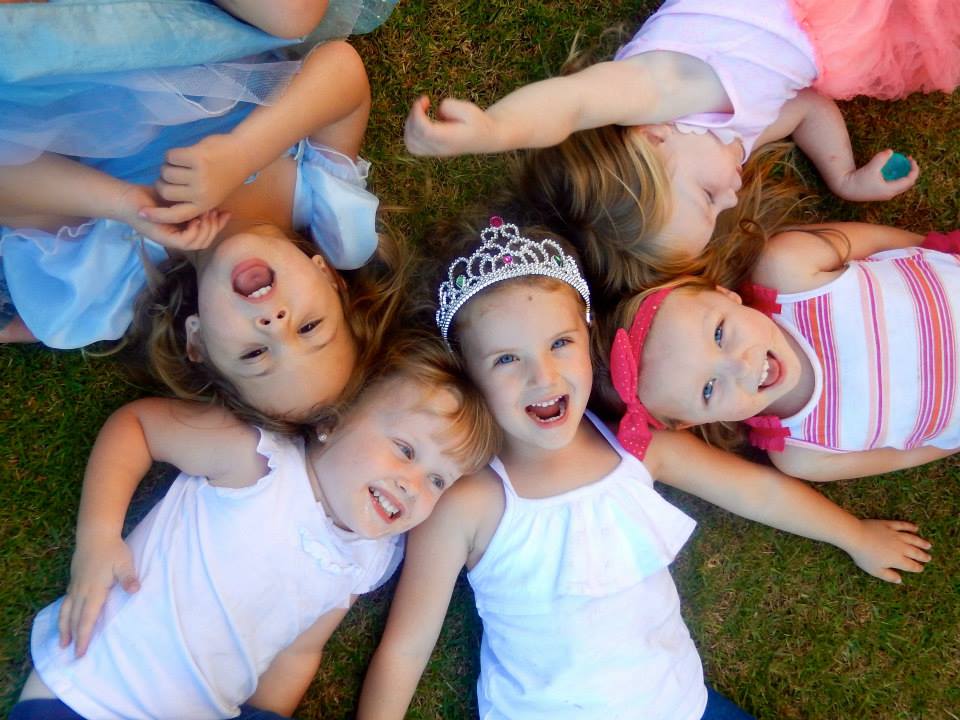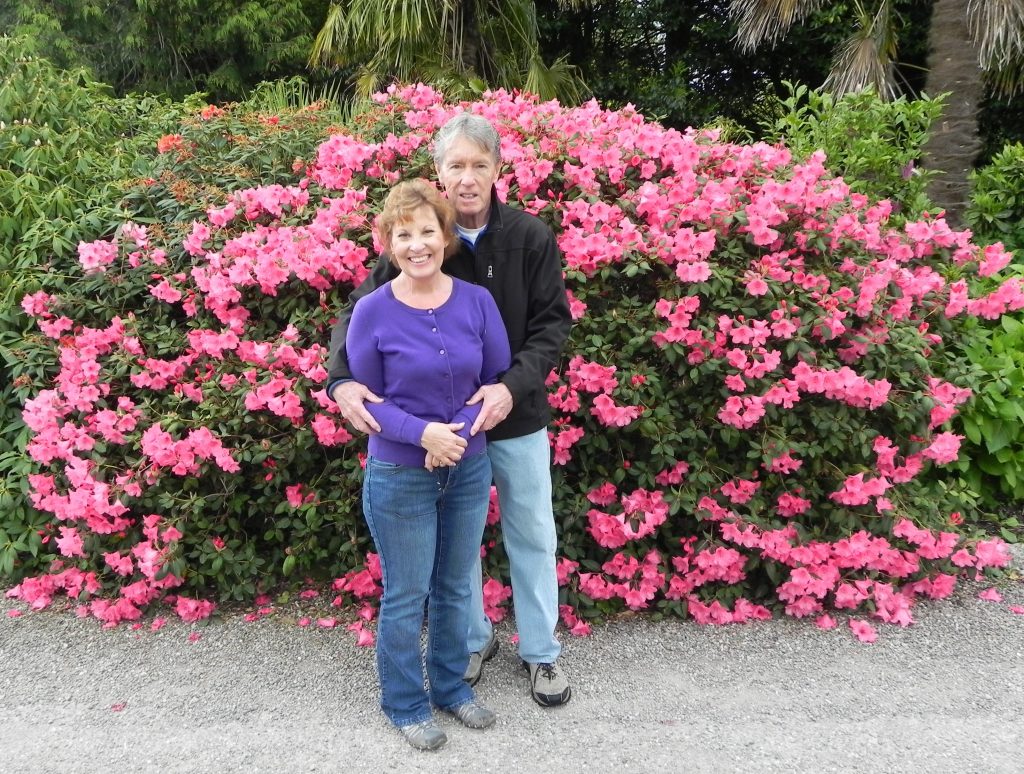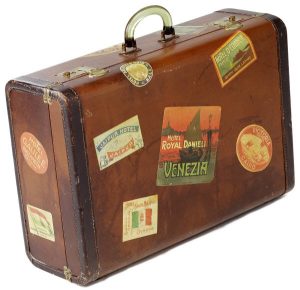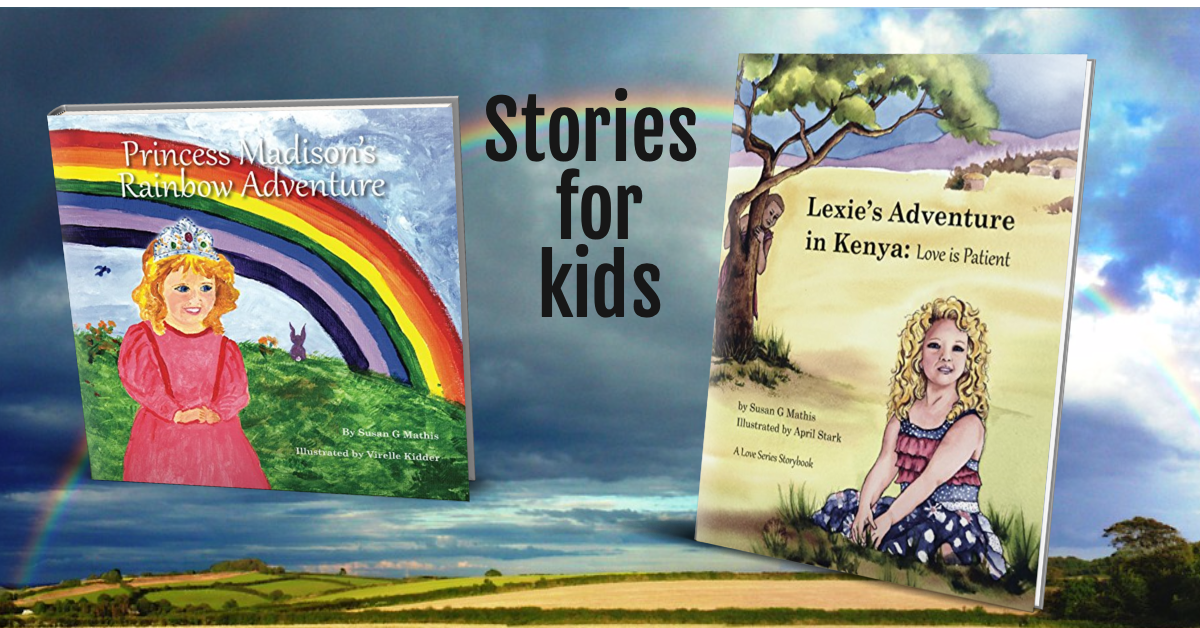Like a Little Child

 Children have so much to teach us. Last week I spent time with four young families. One had a newborn who slept peacefully in my arms while I gooed and giggled over every infant face she made. She was content. I want to be content too.
Children have so much to teach us. Last week I spent time with four young families. One had a newborn who slept peacefully in my arms while I gooed and giggled over every infant face she made. She was content. I want to be content too.
Another family had four busy little ones ages 3-7. The twin three year olds presented me with “gifts” of scribbled drawings that I just can’t throw away. I want to give others more gifts—gifts of myself—even if they are a bit scribbly.
The third family has a six month old, a five year old, and a seven year old. The five year old is a bug-crazy boy who just had to show me his “pet” fly. The six month old worked and worked to roll over and grab a plastic bowling pin, and we all were in awe when she accomplished her feat. And the seven year old read a book to me, and I marveled at the miracle of reading. I want to always be in awe of the wonder of life like these sweet kids.
Then I got to Skype with my grandchildren, the most precious part of my week. They are curious, funny, busy, energetic, inquisitive, and always learning. We laugh and talk and read books and blow kisses. We connect and reconnect on a deep and loving level. And it fills my soul in ways that nothing else can.
Each one of these children is a special and unique gift to me, and each one reminds me to step back from cooking and cleaning and pay bills and all the grownup busyness of life and to take time to be inspired at the beauty of Pikes Peak or create a story or dream or really enjoy moments with loved ones. Time with children not only helps me to reorient to what really matters but also enjoy my days so much more.
Contentment. Giving. Wonder. Learning. Growth. Love. These are what each child teaches me, and I want to apply all of them to my relationships with God and others. Good lessons, kids. Thanks!
How about you? What has a child taught you lately? I’d like to know.
Life’s Little Challenges

 Dale and I just got back from New York, helping my 93-year-old mom settle into assisted living. It was a busy but fruitful week full of lots of emotions and challenges. But that’s just part of life’s journey, right?
Dale and I just got back from New York, helping my 93-year-old mom settle into assisted living. It was a busy but fruitful week full of lots of emotions and challenges. But that’s just part of life’s journey, right?
Through our years together, we have experienced medical challenges—cancer, Parkinson’s disease, multiple surgeries, hospitalizations, and illnesses. We’ve had challenges in our adult children’s lives—financial stresses, unemployment, school struggles, health issues, and major moves across the country and the world. We’ve had life challenges—job changes, aging parents, home and car repairs, and so much more.
Yet all these circumstances have actually brought us closer together because we’ve chosen to lean on each other, to draw strength from one another. You can, too.
Sometimes your marriage will be easy, but other times the potholes or detours of life, the circumstances and the challenges that come your way, will test your marriage and your faith. Yet if you embrace the wisdom of God, He will lead you and guide you through the tough times. He will even carry you over those treacherous mountain passes and through the valleys of hard times . . . if you allow Him to.
Especially in the tough times, remember that your marriage is so much bigger than just two people joining forces to journey through life together. It’s even bigger than your family, although that is definitely BIG!
It’s about how you love each other God’s way. Dale and I make sure we keep this in mind as we make life decisions.
How have your marriage challenges brought you together? Leave us a comment; we’d love to know.
Adapted from The ReMarriage Adventure: Preparing for a Lifetime of Love & Happiness, by Susan and Dale Mathis. Copyright © 2012, all rights reserved.
Travel Tips

 In May, my husband and I took an international research trip to Ireland, and I just returned from my seventh trip to South Africa! Never did I think I’d be doing as much international travel as I have done in the past 12 years, but I’ve enjoyed every moment of it. I thought I’d share some some helpful travel tips I’ve gleaned along the way.
In May, my husband and I took an international research trip to Ireland, and I just returned from my seventh trip to South Africa! Never did I think I’d be doing as much international travel as I have done in the past 12 years, but I’ve enjoyed every moment of it. I thought I’d share some some helpful travel tips I’ve gleaned along the way.
Passports. If you’re thinking about traveling internationally you need a passport. But don’t wait until the last minute or it will cost you. Go to travel.state.gov/passport to get the forms. Normal processing takes about six weeks.
Money. There are ATMs globally, but there is a risk of having your identification stolen, so I use foreign ATMs as a last resort. I get foreign currency here at Wells Fargo and take it with me, especially since I make most of my purchases at local craft markets and businesses instead of tourist places.
Credit cards. Be sure to contact your credit card companies and find out what fees they charge for international usage. Let them know you’re going to be out of the country, for how long, etc. This helps them to not to put a stop on your card when they see it’s being used overseas.
Smart phones. Call your phone company to find out what international charges they may have (sometimes they can be quite hefty). If you don’t use their international package, keep your phone on airplane mode and use Wi-Fi hotspots when you need to check or send email or get on the Internet. You can also use Skype on your phone instead of the incurring expensive cell phone charges.
Conversions. I have a “convert” app on my smart phone that helps me to convert currency, temperature, weight, etc. This is so helpful when I’m buying something and want to make sure that I’m getting a decent price, etc.
Security. Make a copy of your passport, credit cards, drivers license, insurance cards, and any other IDs you take with you. Also, bring a list of your prescriptions, including your eye glass prescription. Keep it all in a money belt along with your credit cards, passport, and most of your money. (After you get through airport security, wear your money belt.) There are pickpockets in any tourist area, so be cautious, even in larger US cities. It’s even good to leave a copy of all your information with family or a friend.
Cameras. While it’s great to use your phone to take pictures, most of the time the battery won’t last for the entire day. Purchase a compact digital camera so you can take lots pictures.
Appliances. Check online to see what adapters you’ll need for the country you are going to and bring at least one. Don’t forget to charge your phone and camera each night so you can take pictures. If you have larger appliances you’ll need converter.
Hair dryers. Most hotels provide hairdryers but often they are not very powerful. Take a dual wattage hair dryer; otherwise you’ll burn out your American hairdryer.
Weather. A few weeks before my trip, I add the city or cities I’m going to on my weather app, so I can keep track the temperatures, rain, etc. I always pack an umbrella and a dollar-store plastic poncho, and I plan for layering my clothing.
Research. For me, part of the fun of travel is researching and learning about the area before I go. I research online, with Rick Steves and other tourist books, etc. I map out my trip, and I put all the information in a document so I have the information during the trip. I take notes as I go, and then after the trip, I make my photo book. (I’ve make 24 photo books so far!)
Packing. Be sure to check your airline to see your luggage and weight restrictions, and stay within the limits. There’s nothing worse than getting to the counter and having to go through your bag to lighten the load or pay extra. (Been there. Done that!)
I use extra large zip lock bags to pack my clothes in, and I include a fabric softener sheet. Bagging my clothes keeps them clean, wrinkle-free, and safe.
I use a white noise app that’s helpful when it’s too quiet or too noisy. And I also have a mini medicine baggie that includes band-aids, cold medicine, pain meds, diarrhea medicine, a and little sewing case with safety pins—just in case.
Carry on. In my carry-on I put my purse, computer, and other valuables on top so that when I go through security I can access them easily. (Don’t forget that you must have the 3-ounce toiletries in a small bag, so put bigger toiletries in your check in.) I pack my meds, glasses, an empty water bottle that I can fill after you get through security, and snacks. I also pack my curling iron, chargers, cords, etc., in a separate ziplock. And I bring a change of clothes just in case I don’t get my bags right away.
What other travel tips do you have? I’d love to know!
Through the Eyes of a Child
 In May, my husband and I went to Ireland. My daughter asked if I would take a Flat Stanley with me so that my grandchildren could experience and hear about Ireland from that perspective.
In May, my husband and I went to Ireland. My daughter asked if I would take a Flat Stanley with me so that my grandchildren could experience and hear about Ireland from that perspective.
If you haven’t heard of flat Stanley, here’s the link http://www.flatstanleyproject.com. It’s a literacy project that you might be interested in.
Well, I decided to take a “Flat Sally” with me, since I have three granddaughters, and it added a special dimension to our nearly 1300-mile trip around Ireland. The trip was an amazing experience that I believe will strengthen and enlarge my Irish Quilt Legacy books.
But taking Flat Sally to Ireland added another dimension to our trip. It helped me to experience Ireland through the eyes of a child—to see what a child would see, to smell what a child would smell, to hear what a child would hear, to taste what a child would taste. It was an amazing experience, and because I was trying to get pictures and capture experiences with Flat Sally, I gained much more from the trip than I ever thought possible.
When I got home and made my photo book of Ireland, I decided that I needed to make a separate photo book for the grandgirls. I have to admit that I went a little farther than I had planned, because I decided to write story about Flat Sally’s travels through Ireland—in limerick! Amazingly enough, it worked. I guess that just shows that you never know how you might get inspired.
So my advice is that when you travel, look through the eyes of a child, not just through the eyes of an adult. You’ll see, hear, smell, feel, and taste much more than you would as an adult, and you will be the better for it. Your trip will be richer and more fun then you ever expected.
How does looking through the eyes of a child enlarge you? I’d love to know!
Imaginary Friends
 Last Christmas, I wrote a children’s picture book about my granddaughter’s imaginary friend, Kelsey. Kelsey is a reindeer that Reagan “found” here in Colorado the Christmas when she was two and took back to South Africa. Ever since, Kelsey has gone on all kinds of adventures with Reagan—to the beach, to the store, to church—everywhere. Kelsey has traveled with Reagan, slept, played, and had fun with her for over two years.
Last Christmas, I wrote a children’s picture book about my granddaughter’s imaginary friend, Kelsey. Kelsey is a reindeer that Reagan “found” here in Colorado the Christmas when she was two and took back to South Africa. Ever since, Kelsey has gone on all kinds of adventures with Reagan—to the beach, to the store, to church—everywhere. Kelsey has traveled with Reagan, slept, played, and had fun with her for over two years.
In October, Reagan Skyped with us and announced that she had put Kelsey on an airplane to come to our house and get her room ready for their Christmas visit! What an imagination!
I decided to join in the fun and write a story about Kelsey’s visit with us. It turned out to be an adorable children’s book, and several people have suggested I publish it for a larger market. Though I haven’t yet done that, it’s an interesting thought.
Did you have an imaginary friend when you were a child? I did, and I can guess many writers probably did. Now that I’m writing fiction for adults and children, I get to have a whole cast of imaginary friends—the characters of my books. They have personalities, quirks, talents, abilities, and all the kinds of things that make my real friends so interesting and fun to be around.
Just like Kelsey became a friend to Reagan, I hope my characters will become friends to my readers. I hope readers can visualize my characters, experience them, and come to love or dislike them, just as I have.
Kelsey was so real to Reagan that on our way to the Christmas Eve service, a herd of deer was grazing in a field near our home. Reagan saw them and was convinced that one of the deer was Kelsey coming to wish her a Merry Christmas before her deer friend went to help Father Christmas deliver presents to the children around the world!
That’s the kind of characters I want to create. Characters that live and breathe and show up in the hearts and minds of my readers.
What makes characters “real” to you? I’d love to know!

